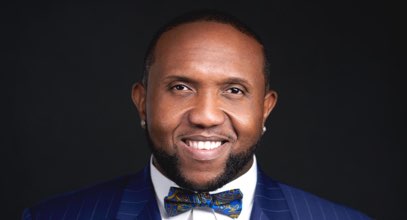Fans depend on athletes to score touchdowns, hit homeruns, and win championships, but behind the scenes most successful sports stars rely on a hard-working sports agent to take care of business for them, so they can concentrate on their game.
“I liked the idea of being able to combine two interests, business and sport, in my career,” says Clarke Jones, IMG senior vice president and global director of golf clients. “While that was what led me to the business initially, there have been so many learning opportunities and great experiences in the industry that I didn’t realize would be possible at the time.”
Although becoming a sports agent might be the ideal career for a sports fan, competition to get jobs in sports management can be tough.
“Becoming a successful sports agent is definitely considered to be competitive,” says Adam Pincus, a Legal instructor at South University Online. “There are four main professional sports leagues in the United States and there are only so many players in each league. So there is, to some degree, a limited amount of clients to represent.”
Pincus says athletes are not required to work with a sports agent, but many choose to do so.
“Athletes typically hire sports agents to represent them in contract negotiations with their respective team, or to field offers from several teams if the client is a ‘free agent’ and available to sign a contract with any team,” he says.
Gary Glick, president and founder of Dallas, Texas-based Synergy Sports, Inc., says that a college football player cannot sign with a sports agent until after the last game of their senior year.
Although he cannot sign them during the football season, Glick observes the players by scouting the football games, maintaining contacts with different schools, and attending agent-player week.
It’s rewarding to see them succeed because you know you’ve done your job for them.
“Most of the schools in the Big 12, have agent-player week,” Glick says. “As an agent, you have to be registered in the state and with each school. Through that system the school knows who you are.”
Glick says the schools let the agents know when their agent-player week is, and reveal the names of the seniors that are eligible for the draft. The sports agent then chooses the athletes that they would like to meet with, and the school arranges for them to spend a day or two together.
Glick says that once an athlete chooses a sports agent, they typically work together for the duration of the athlete’s career.
Responsibilities of a Sports Agent
“In overseeing client representation for IMG Golf, my role involves advising and servicing our many golf clients around the world,” Jones says. “Our clients turn to IMG to help them create marketing partnerships and revenue, as well as helping them navigate the many logistical issues facing them in their careers.”
Jones says that by managing the different aspects of his clients’ careers for them, they are able to focus on being the best golfer they can be, which is their main responsibility.
“It’s rewarding to see them succeed because you know you’ve done your job for them,” Jones says. “Helping our people be successful and fulfilled is another key to my role at IMG.”
Steven Jeffers, founder of Elite Sports Agency, cites his most important responsibility as both an agent and the creator of his sports agency as ensuring that everyone in his company follows the laws and guidelines set forth by the various athletic organizations in which they do business.
“The second-most important function is to maximize our client’s worth to teams in which we are negotiating a contract for,” Jeffers says. “At times we have to take less to become successful and that also includes our clients taking less money to have better opportunities in the near future and prolonging their professional careers.”
Pincus says that a sports agent needs to have a clear understanding of current market conditions, and the current value of their client in order to negotiate the best deal for them.
“Much like buying or selling a home, the agent needs to be aware of the fair market value of their client and factor in any other particulars that may be relevant to the negotiation,” Pincus says.
Daily Life of a Sports Agent
Glick and Jones agree that there are not many typical days when working in sports management.
Glick says his days usually involve putting travel schedules together, researching players, making scouting phone calls with the NFL to see what they think about the players he’s researched, and placing players with teams.
“Communication is key to be on top of industry developments and helping execute business for our clients, so each day is filled with constant email and telephone dealings,” Jones says. “The fact that IMG is a global company, and many of the people we’re dealing with are in the United Kingdom, Europe, Asia, and Australia, also means that those conversations are happening around the clock due to different time zones.”
Despite the long hours, Jones says he wouldn’t trade being a sports agent for any other career.
Jeffers cites the long hours associated with being a sports agent as being frustrating at times, but ultimately well worth the sacrifice.
“It is sometimes like working in childcare,” Jeffers says. “Some of these athletes want to be pampered to the extreme. A lot of time is spent talking about their personal relationships and their obsession with being the best.”
Jeffers says that forming deep bonds with clients on a personal and professional level is part of the job.
“We are often called in the middle of the night because they cannot sleep,” Jeffers says. “We lose a lot of personal time with our own families, but again, most of these clients become extended family members.”
Preparing to Work in Sports Management
Glick, who is also an attorney, feels that his law degree is helpful in his career as a sports agent. He finds this legal experience to be helpful with responsibilities such as reading and negotiating contracts, as his clients rely on him to handle this for them.
“When you’re talking to the parents of the students, they want you to be a lawyer,” Glick says.
Although it may be helpful to have a law degree, Pincus says a sports agent is not required to have a law degree or any other type of formal education.
“A well-known example of a non-lawyer negotiating a contract for a high-profile athlete was in 1999, when Heisman Trophy winner Ricky Williams hired rap artist Master P to represent him,” Pincus says.
Jones says at large companies, such as IMG, sports agents are able to work with experts in the legal, sales, marketing and communications fields, who can help in assisting their clients in areas outside of their personal expertise.
“We’ll see students who want to work at IMG who have a degree in any of these areas when they graduate, but I’ll tell them that it is the specific experience in the industry that will really help them,” Jones says.
Jeffers credits his internship with baseball super agent Warren Hughes, for helping him to get his start in sports management.
“I became his go-to guy when he was on vacation and I helped him find his clients new teams while I was still in college,” Jeffers says.
This experience helped Jeffers to prepare to be where he is today.




